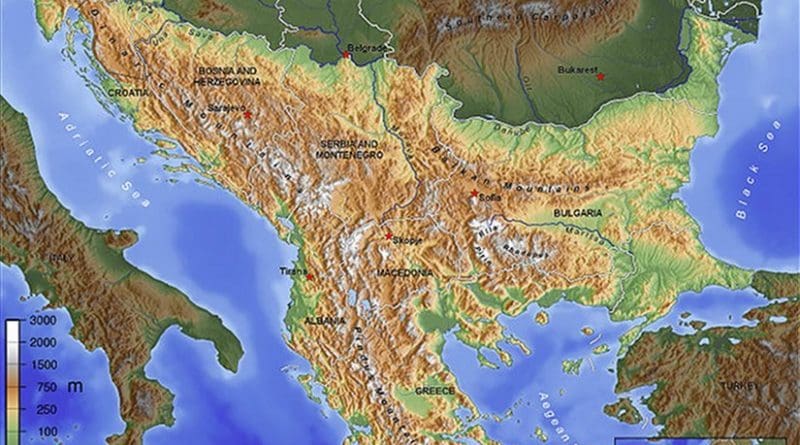EU Migration Summit Pledges Cooperation With Balkans
The EU’s last-minute compromise statement backs formation of processing centres inside the EU and ‘disembarkation platforms’ outside EU borders – and promises more financial help for African states and cooperation with Western Balkans.
By Gjergj Erebara
EU leaders ended a heated debate about handling migration at 4.30am Friday by accepting Italy’s demand for more help in handling the burden and agreeing in principle to set up “disembarkation platforms” to process asylum seekers outside the EU and closed processing centres within the EU.
EU leaders also agreed to spend more money helping African countries curb migration.
The European Council’s final published statement also urged continued collaboration with and support for the Western Balkan states, which were at the centre of the 2015 refugee crisis and have again come into the spotlight lately, due to concerns about a new Adriatic coastal route opening up.
“Cooperation with, and support for, partners in the Western Balkans region remain key to exchange information on migratory flows, prevent illegal migration, increase the capacities for border protection and improve return and readmission procedures,” the statement reads.
The Council said it supported the idea of establishing so-called “regional disembarkation platforms” outside the EU – but there was no mention of which countries would host such centres, despite much speculation in Albania and other Balkan countries that they were being considered.
“The European Council calls on the Council and the Commission to swiftly explore the concept of regional disembarkation platforms, in close cooperation with relevant third countries as well as UNHCR and IOM,” the statement adds.
After the idea of these “platforms” was first proposed by politicians in several EU member states, Tunisia, Albania, Montenegro and Bosnia quickly stated that they would not host them, either in exchange for money or for faster EU integration processes.
Albania Prime Minister Edi Rama told German Media that Tirana would “not accept camps even in exchange for EU accession”.
Bosnian Security Minister Dragan Mektic spoke likewise. “I don’t care about anybody’s money, not even the EU’s money,” he said.
More likely host countries mentioned in the European media are Algeria, Libya, Morocco and Egypt. However, Morocco has already ruled out participation.
The Council also proposed “controlled centres” to process asylum seekers and refugees within EU states – but again did not mention any names of countries, and was careful to stress that such centres should be built “on a voluntary basis” and with “shared efforts”.
Central European states led by Hungary remain adamant that they will not accept even token numbers of asylum seekers, and have rejected appeals to show solidarity with the rest of the EU on the issue.
The Council meanwhile said the EU sought deeper collaboration from African countries, which are often the sources and transit points for migration, and gave a green light for the disbursement of 500 million euros from the EU Trust Fund for Africa.
In another win for Italy, it said migrants found in Libyan waters were the responsibility of the Libyan coast guard – and so were to be turned back to Libya.
Italy’s new government has taken a hardline approach towards allowing boats carrying refugees and asylum seekers to dock in Italian ports, leading to heated rows with France, Spain and Malta.
A crisis developed last week when a German humanitarian vessel, the Lifeline, was refused landing for six days, eventually docking in Malta.

